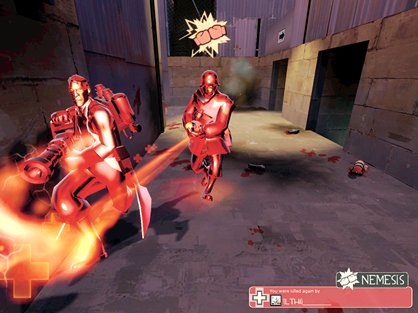Sleepless in Cyrodiil
We've all stayed up a little longer than we should for just a bit more gaming. What happens when you push it too far?
Sleep is essential for survival. When you’re sleep deprived, you’re far more likely to be fragged. Yet many gamers keep strange hours, staying up late to continue playing when it’s not only detrimental to their health, but even to their ability to play. We understand the urge to keep playing, but we also wonder exactly how your gaming - and your health - deteriorates the longer you keep your eyes open. That’s why I’m going to stay awake for 48 hours. It’s not because sitting at home playing games for two days sounds fun, though it does. It’s because scientific progress requires brave researchers willing to take risks to further humanity’s endless pursuit for truth. So with games selected, reflexes ready to be tested and plenty of vitamin supplements beside me, it’s time for the journey to begin. Kids, don’t try this at home.
Remarkably, despite every human on the planet embracing it for a third of their lives, the purpose of sleep is not well understood. What we do know is that sleep has restorative effects. Levels of glycogen in the brain are replenished after falling during the waking hours, making us feel more rested and alert afterwards. This means that sleep deprivation for 48 hours will lead to impaired memory and reduced cognitive abilities. Assuming that I’m not some miracle of modern medicine - we’ll ignore that thing I can do with my thumbs - I’m expecting my skills in gaming to disappear. My reflexes will slow, leading to sloppy shooting in Team Fortress 2. My cognitive faculties will trip over themselves, resulting in poor decision making in Desktop Tower Defence. My focus will disappear completely, causing me to fumble blindly into blocks in Audiosurf. Basically, I expect to fall apart. So what happened?

I fell apart. Scientists are unsure about certain specifics regarding sleep, but here’s what they do know: with continued lack of sleep, the parts of your brain that handle memory, language and planning start to shut down. After just 17 hours of persistent wakefulness, your performance at these mental tasks decreases by the equivalent of having drunk two glasses of wine - the legal drink driving limit. In other words, humans get real stupid real fast when they haven’t had enough sleep.
It’s understandable then, that after being awake for 45 hours - through two lonely nights - I gave up. I collapsed into bed feeling sick in my stomach, and after the world had stopped spinning I drifted off for 12 hours of undisturbed sleep. During my two days, I had experienced increased irritability and grogginess, a confused appetite and a recurring cycle of energetic highs and listless lows. The ups and downs are due to circadian rhythms, a roughly 24-hour long cycle that affects the physiological processes of animals. In humans, this is mostly controlled by light. Your eyes detect changes in ambient light and then feed that information to your suprachiasmatic nucleus, or what’s more commonly known as your biological clock. The pineal gland then secretes a hormone called melatonin, which causes you to feel drowsy.
Weekly digests, tales from the communities you love, and more


